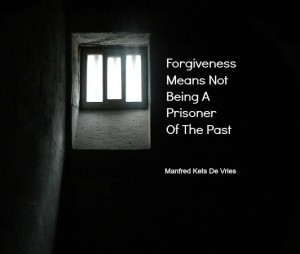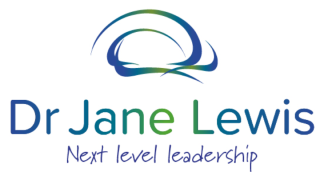 “Forgiveness means not being a prisoner of the past”. So says INSEAD professor Manfred Kets de Vries in his paper on The Art of Forgiveness: Differentiating Transformational Leaders, where he is discussing the power of forgiveness as a business tool.
“Forgiveness means not being a prisoner of the past”. So says INSEAD professor Manfred Kets de Vries in his paper on The Art of Forgiveness: Differentiating Transformational Leaders, where he is discussing the power of forgiveness as a business tool.
Something I’ve noticed in my work with people around forgiveness is that many people don’t realise that they are prisoners of the past. And of course, when you don’t know you’re a prisoner, then you don’t tend to look for a way out.
We think of prison as something tangible, but how many of us are prisoners of our own stories and beliefs? I know I have been, and its something I continue to work on. I see it in clients and students when they resist the idea that their story about themselves might not be true, or might be stopping them from having the success and happiness they want in life.
Of course, it can be very difficult from that position inside your own head to see what others see in you, and to realise where your story is no longer true – if it ever was true. But each one of us lives inside our own bubble that we believe is reality, and it can be really, really difficult to accept that that aspects of that reality are in fact false. It’s takes a certain level of emotional intelligence to break out of the bubble, or to know that unforgiveness is stopping you from being as effective and happy as you ‘should’ be.
So how do you know if unforgiveness is holding you back? Well, help is at hand. If you download the paper, there’s a forgiveness self-evaluation questionnaire, to help you figure out how forgiving you are. There is a downside: the questionnaire focuses on your attitudes towards others, not to the way you view yourself. It’s possible to come out as forgiving of others, yet still be someone who beats yourself up on a regular basis.
As the recent Dove France advert shows, we do tend to use language talking to and about ourselves that we would never ever use to other people. Language that is abusive, intolerant, hyper-critical and unreasonable. Try recording yourself when talking about yourself, or have someone else record or feed back to you. It can be eye-opening.
In his article, Kets de Vries remarks that truly transformational leaders understand the consequences of unforgiveness. ‘Holding grudges is a form of arrested development’ says he! He’s talking about leaders of larger organisations countries. However, this point is just as relevant for small business, and for self-leadership.
I truly belief that leadership begins with the self – and if you can’t learn to forgive yourself first, and others, how the hell can you expect others to extend forgiveness towards you when you get things wrong?
If you’re interested in forgiveness as a business tool, register for the free webinar I’m running on 28th April at 8pm UK time.
